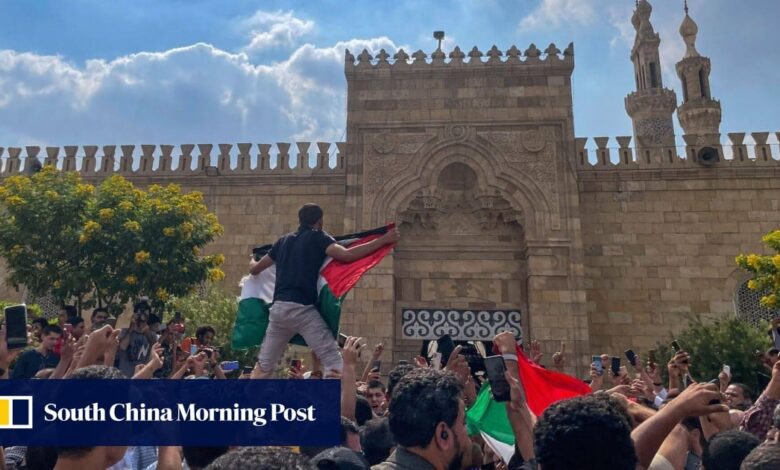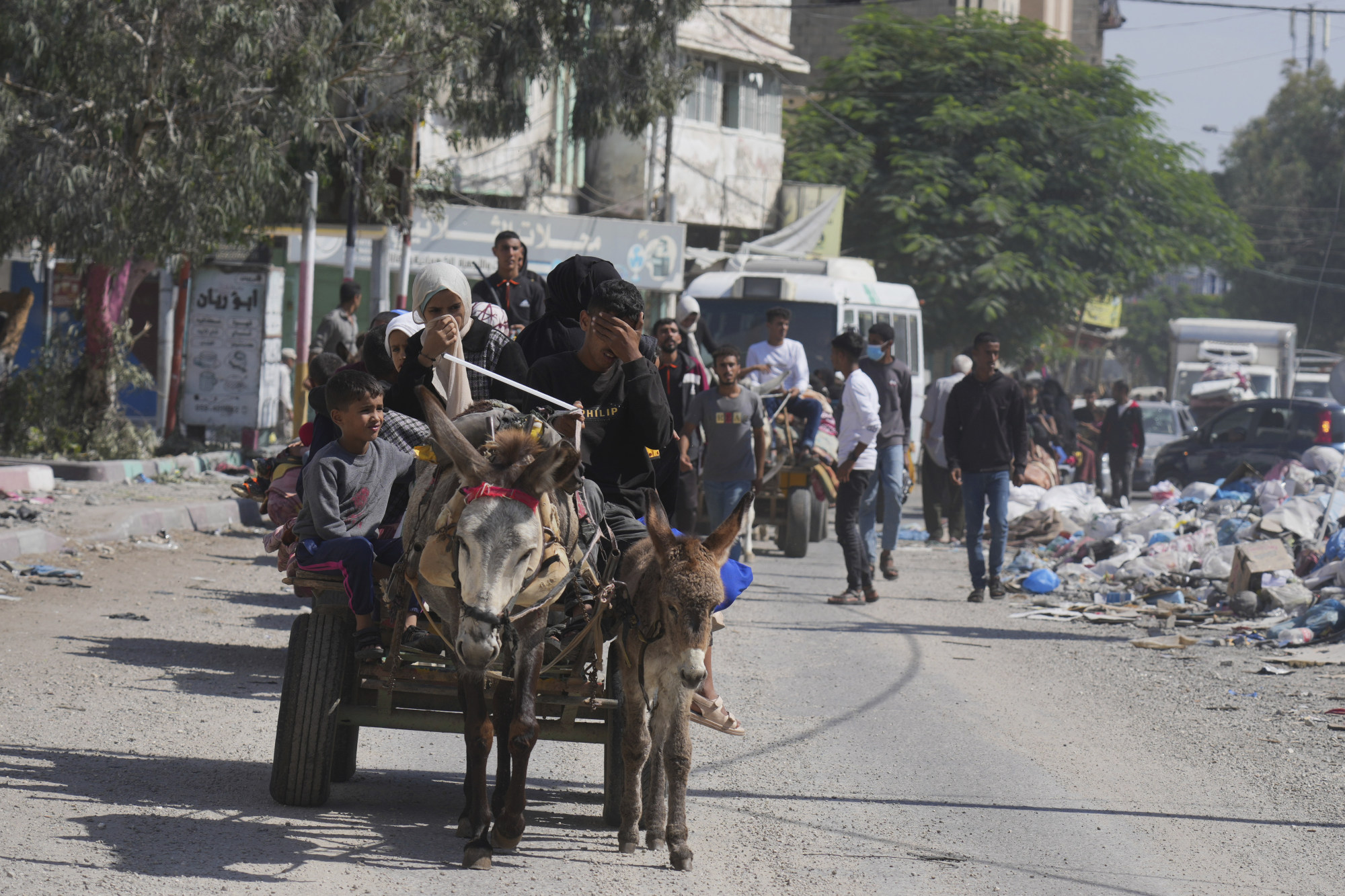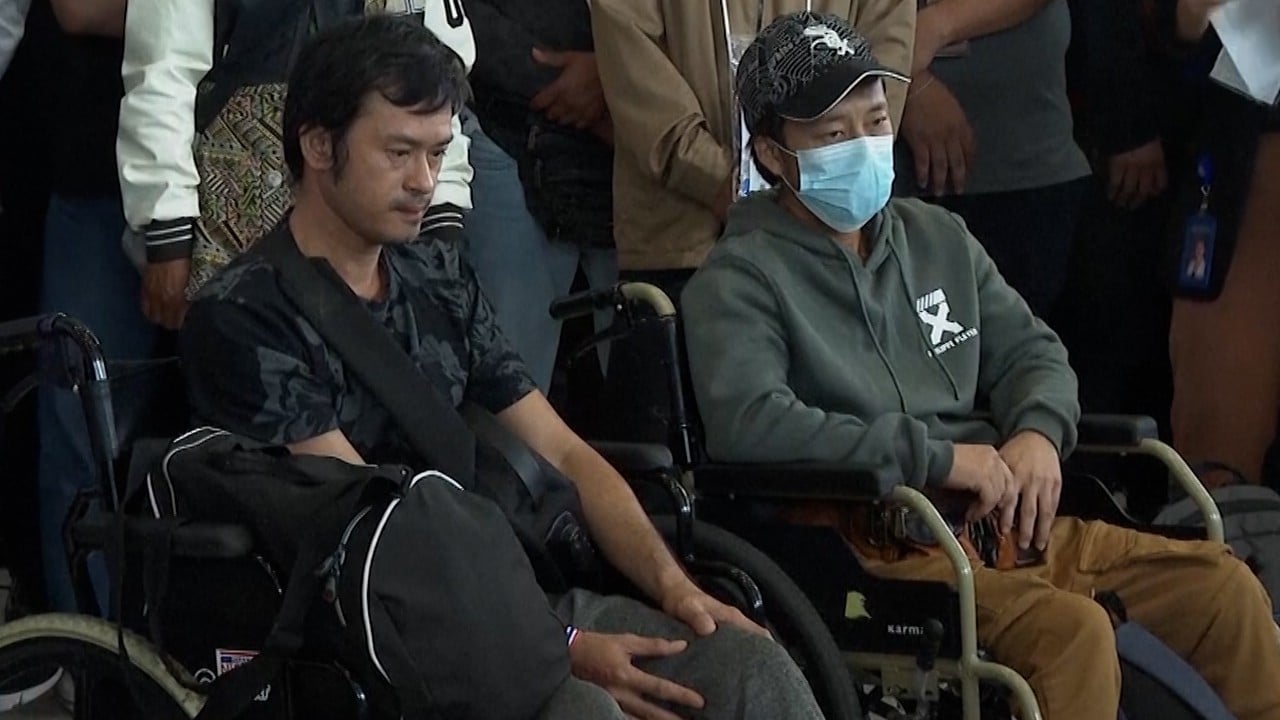Egypt’s dilemma over Israel-Hamas war: open its border to fleeing Palestinians or leave them to their fate

[ad_1]
After Israel declared a “complete siege” of Gaza, neighbouring Egypt is faced with a dilemma: open the last remaining exit to a flood of refugees, or leave the Palestinians to their fate.
It’s not a simple calculation for Egypt, which is mindful that once the Palestinians have left Gaza, Israel may never let them return, weakening their aspirations to statehood.
Fleeing is also a last resort for many inhabitants of the Gaza Strip, already a territory of refugees whose families were driven there when Israel was created in 1948.
“We will stay, we will not leave,” Jamal al-Masri said on Thursday, after his house in Gaza’s Al-Shati refugee camp was destroyed in an Israeli air raid.
The latest crisis was sparked by last week’s attack by militant group Hamas, which controls Gaza, left more than 1,300 people dead in Israel. Israeli reprisal strikes have killed over 1,500 in the narrow strip of sea-bound territory.
US fears Israel has no plan for how to contain Gaza invasion fallout
US fears Israel has no plan for how to contain Gaza invasion fallout
Fears for Gazans have soared after Israel warned 1.1 million – nearly half of the total population – to evacuate the territory’s north, ahead of an expected ground offensive.
The United Nations said it was “impossible” for them to leave the territory, which has been under an air, land and sea blockade by Israel since 2006.
The mood, however, remains defiant. “The Palestinian people went into exile once and they will not do it again,” Gulf-based Gaza politician Mohammed Dahlan said on Arab TV.
Even the Rafah crossing to Egypt has been closed since Tuesday after it was targeted by a spate of Israeli air strikes. The access points to Israel are all shut.
Egypt prides itself on the fact that it has never set up tented refugee camps, saying the nine million Syrians, Iraqis and Sudanese it hosts can work and study like Egyptian citizens.
But most of all, Cairo calling on Palestinians to leave their land would break a taboo even bigger than its recognition of Israel in 1979, when it became the first Arab country to do so.
If 1.1 million people from northern Gaza poured across the southern crossing, it would eclipse the numbers from 1948, when more than 750,000 people crossed the borders.
On Thursday, a day before Israel’s call to clear northern Gaza, Egyptian President Abdel Fattah al-Sisi insisted the territory’s inhabitants must “stay steadfast and remain on their land”.
The Palestinian question “is the cause of all Arabs and it is important that the people who embody it remain unshakeable”, said Sisi, who has stressed his top concern is “national security” – an allusion to the risk of Hamas fighters slipping across the border.
Jordan’s King Abdullah II has also rejected “the export of the crisis to neighbouring countries and the aggravation of the question of Palestinian refugees”. About a third of the world’s six million Palestinian refugees are in Jordan.
For Egypt, memories remain bitter of January 2008, when thousands of Palestinians forced their way across the frontier as Hamas militants repeatedly bulldozed through the border wall.
Since then, Egypt has redesigned the city of Rafah, where a large area was completely razed as part of the army’s fight against jihadists in North Sinai.

To replace the destroyed houses, Egypt built a “New Rafah” which remains uninhabited to this day.
Some believe the empty buildings could house Palestinian refugees. But that would play into the hands of Islamists, the hosts of pro-regime talk shows warn.
If the army, led by Sisi, overthrew president Mohammed Mursi of the Muslim Brotherhood in 2013, it was because the elected leader “wanted to give Gazans part of Sinai”, TV host Youssef al-Husseini said this week.
Meanwhile, the University of Al-Azhar, the highest institution of Sunni Islam, added its influential voice to the debate.
“It is better to die as a hero and a martyr on your land rather than abandon it to the colonialist usurpers,” it said in a statement that was widely shared among Palestinian social media users.
“If you leave your land, your cause and our cause will disappear forever,” the university warned.
[ad_2]
Source link






